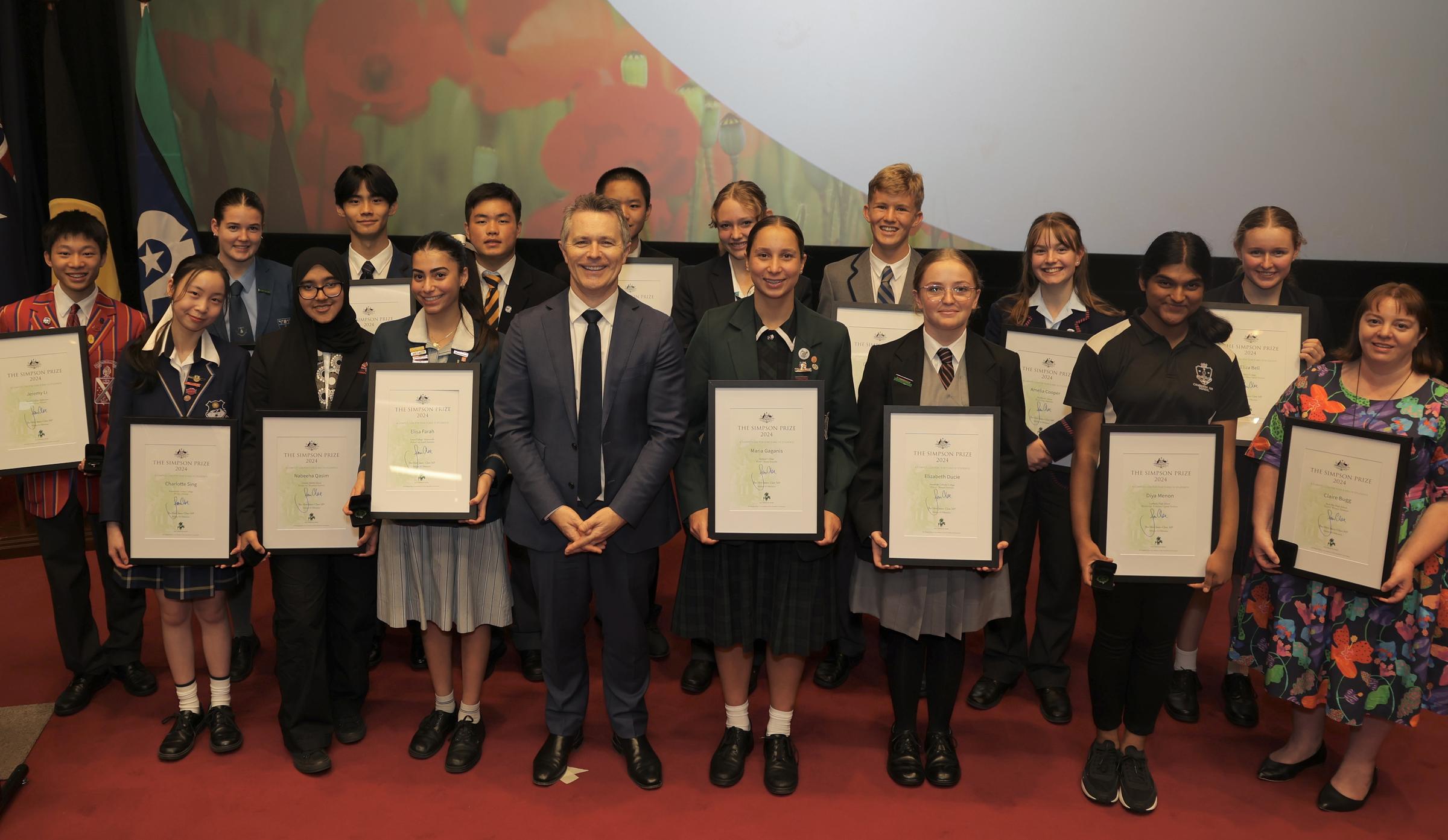Humanities Overview (IBDP & TCE)

Humanities Overview (IBDP & TCE)
The Friends' School Humanities courses come under the title of " Group 3 - Individuals and Societies" for the IBDP and "Humanities and Social Sciences" or HASS for the TCE.
It is important to note that no prior knowledge or experience is required to choose any of the Humanities courses in the IBDP or TCE.
To help students and parents understand the significant range of Humanities courses on offer in both the IBDP and TCE curriculum - the Learning Leader of Humanities has recorded a video that provides clear guidance and support for your choices.
IBDP Group 3 (Individuals and Societies)
In the IBDP at The Friends' School a student can choose from:
- Economics Higher Level (HL) or Standard Level (SL)
- Global Politics Higher Level (HL) or Standard Level (SL)
- Psychology Higher Level (HL) or Standard Level (SL)
- Digital Society Higher Level (HL) or Standard Level (SL)
or as either a Group 3 or Group 4 (Science)
- Environmental Systems Higher Level (HL) or Standard Level (SL)
There is also the option to anticipate Digital Society, Economics, Global Politics or Philosophy at Standard Level (SL). This means they can be completed by the end of your first year (Year 11).
TCE Level 2
- History
- Legal Studies - Foundation
TCE Level 3
A student can choose one or more of the many pre-tertiary HASS courses on offer at The Friends' School. These include:
- Accounting
- Ancient History
- Asian Studies
- Business Studies
- Economics
- First Nations
- Geography
- Legal Studies
- Modern History
- Psychology
- Philosophy
- Studies of Religion
- Sociology
All courses are open to all students beginning in either 11 or 12 with some recommended pathways outlined below and in the video above.
Completion of Level 3 HASS courses provides you with your Reading and Writing Standard for the TCE (with the exception of Accounting and Business Studies). Completion of Accounting provides you with your Mathematics Standard for the TCE.
The following pathways are recommended but not prescribed. There is no prior knowledge or experience required to enrol in Humanities courses.
There are a small number of Level 3 subjects we recommend should only be tackled in Year 11 if you have a B or higher in either Year 10 Humanities or Year 10 English. These are Asian Studies, Economics, First Nations, Legal Studies, Psychology and Sociology. These subjects may include a portfolio approach or have Independent Investigations which are externally assessed.
There are a number of Level 3 HASS courses which can be great Year 11 preparation for those students still developing some of the skills required for courses in English, Science or Mathematics that they would like to complete in Year 12. These include Accounting, Ancient History, Geography or Philosophy. These courses also contribute to your ATAR and are perfect for students hoping to maximise their skills and follow their interests in Year 11 or 12.
A student’s results in Year 10 Humanities, English, Mathematics and Science should be taken into account by students and their families when selecting specific courses.
It is recommended that students consult with their Year 10 Humanities teacher, Humanities Learning Leader or a Pathways co-ordinator while making their course choices for Humanities.
Please feel free to contact current Year 10 Humanities Teachers or the Learning Area Leader of Humanities if you have any questions.
What skills do these courses develop?
• Analytical thinking and innovation
• Active learning and learning strategies
• Complex problem solving
• Critical thinking and analysis
• Creativity, originality and initiative
• Leadership and social influence
• Resilience, stress tolerance and flexibility
• Reasoning, problem-solving and ideation
• Persuasion and negotiation
• Communication
• Written comprehension
• Judgement and decision-making
• Reading and oral comprehension
• Multitasking
• Empathy
• Social perceptiveness
• Attention to detail
• Problem-solving
• Active listening
What Pathway Options do these courses provide?
The skills developed during these courses help prepare students for a number of university and non-university pathways which can lead to careers and employment in areas such as:
Historian, Cultural or Conservation Heritage Officer, Economic Historian, Geographical Historian, Teacher (Primary, Secondary) University Lecturer/Academic, Screenwriter, Playwright, Media Advisor, Communications Officer, Publishing Editor, Fact-checker, Publisher, Writer/Author, Journalist, Environmental Lawyer, Solicitor, Criminologist, Conservator, Management Consultant, Manager Human Resources, Policy Advisor, Policy and Planning Manager, Policy Analyst, Political Scientist, Foreign Affairs and Trade officer, Parliamentarian, Business Consultant, Resource Economist, Community Worker, Social Researcher Counsellor, Student Advisor, Psychiatrist, Psychologist, Welfare Case Manager, Welfare Worker, Youth Worker, Social Work, Sustainability Activist.
